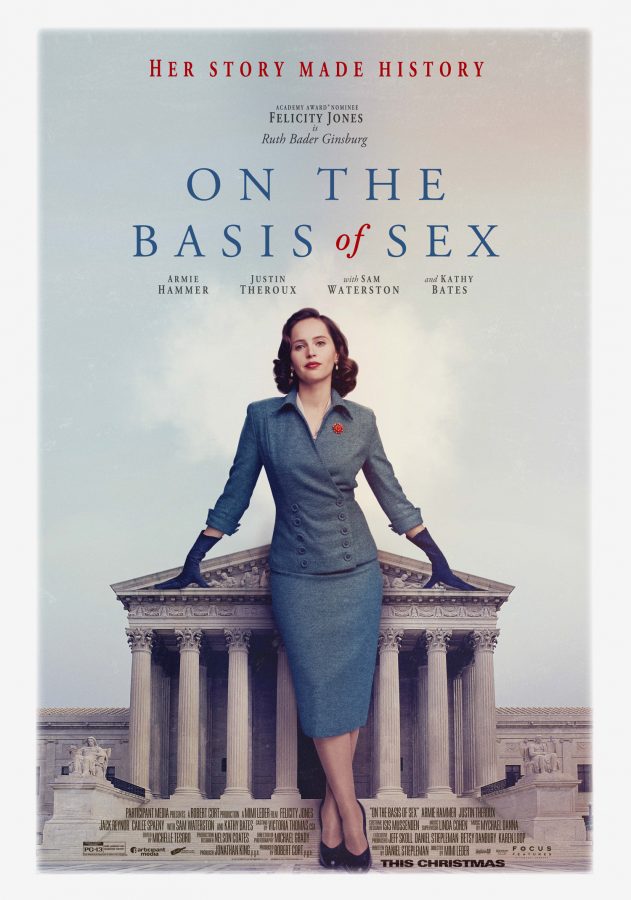Government & Law students and faculty celebrated Constitution Day by reflecting upon advancements in equality under the law through watching, “On the Basis of Sex,” sponsored by the government and law department, the Kirby government and law society and women in law. The movie documents the United State’s current Justice of the Supreme Court Ruth Bader Ginsburg and her early legal work in eliminating sex-based discrimination.
Government & Law Department Head Helena Silverstein explained in her opening remarks that while the Constitution was signed on September 17, 1787, any form of equality did not make it into the Constitution until after the Civil War. Silverstein added that even after the passing of the Nineteenth Amendment that gave women the right to vote in 1920, the Equal Protection clause was restricted by narrow interpretations of the Fourteenth Amendment.
“One of the key figures responsible for contributing to a broader reach of the interpretation of the Fourteenth amendment is Ruth Bader Ginsburg,” Silverstein said.
While Ginsburg has been a Supreme Court Justice since 1993 with no plans to retire, much of her legacy comes from before her time on the Supreme Court.
“Like Thurgood Marshall before her, [Ginsburg] played a very pivotal role in crafting a litigation strategy for challenging discrimination through legal cases,” Silverstein said.
After showing the documentary “RBG” last semester, the Kirby Government and Law Society decided to show this film for Constitution Day as they felt it was still relevant and provided a new perspective on Ginsburg’s work and the challenges imposed by gender inequalities.
The film, released in December 2018, chronicles much of Ginsburg’s career as a young lawyer. It begins when she is a law student at Harvard Law School, dealing with being one of the only women in her class, taking care of her infant daughter and helping her husband, Martin Ginsburg, keep up with classes when he becomes sick with cancer.
After graduating from Columbia Law School due to her family’s relocation to New York, she is unable to find a law firm that wants to hire a woman, so she begins teaching at Rutgers Law School.
In 1970, Martin discovers a tax law case, Moritz v. Commissioner, that deals with sex-based discrimination against a man. Ruth sees it as an opportunity to challenge legislation made on the basis of sex, since the person being discriminated against is a man.
After a long and strenuous road to the Court of Appeals, Ruth argues that societal roles no longer exist, and the law should update to reflect the social change already taking place.
When a judge tells Ruth that the Constitution does not contain the word “woman,” she responds that it does not contain the word “freedom” either.
The movie contains a star-studded cast with Felicity Jones starring as Ruth Bader Ginsburg and Armie Hammer as Martin Ginsburg. Justin Theroux, Kathy Bates, and Sam Waterston have major roles as well. At the end of the film, viewers see Ruth Bader Ginsburg herself walking up the steps to the Supreme Court in the closing scene of the movie.
“On the Basis of Sex” is “inspiring to women who want to pursue careers in government or law,” president of the Women in Law club Elise Bossert ‘20 said.
“Ruth Bader Ginsurg was able to work her way up in a system dominated by men and successfully normalize women in the workforce,” treasurer of the club Jules Bernstein ‘22 wrote in an email. “Furthermore, she has instilled feminist ideals throughout her entire career to allow for women in all fields to succeed.”
“[The Movie] aligns perfectly with the goal of our club, which is to bring women together who are passionate about the law to learn more about it and empower each other to be the best that we can be,” Bossert said.



























































































































